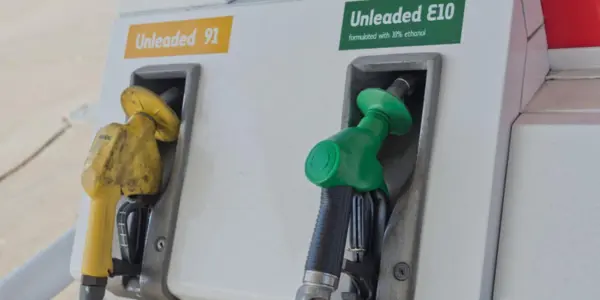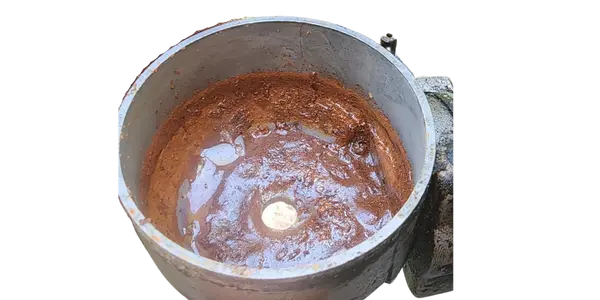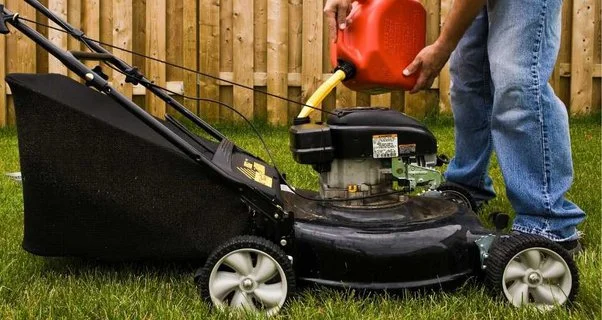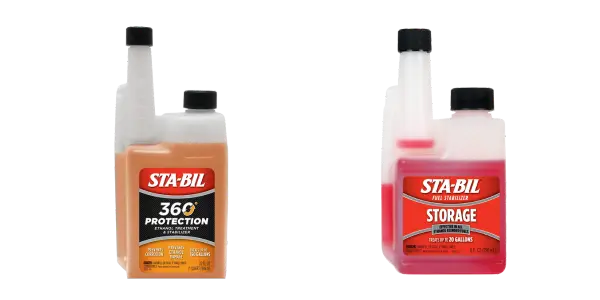Choosing the right gasoline for my lawn mower has always been my top priority. It’s more than just filling up the tank. It’s about making sure my lawn mower operates at its best and lasts longer. In this article, I will share my experience in selecting the right gas for a lawn mower and will explore different types of gas, discussing the pros and cons of ethanol blends, giving you practical tips to enhance your lawn mower’s performance, and offering helpful information to make informed decisions.
Knowing Gasoline Types
Gasoline isn’t a one-size-fits-all solution. It is produced in different formulations with its own unique characteristics and compositions. As you pull up to gas stations across the country, you’ll encounter different ethanol blends labeled with numbers such as e10, e15, and e85. But do you know what these numbers mean?

- E stands for: The ‘E’ in these blends stands for ethanol, which is a renewable fuel that comes from corn and grains.
- Ethanol Blends: These blends combine regular gasoline with varying percentages of ethanol. For instance, e10 contains 10% ethanol, while e15 contains 15% ethanol, etc.
- Regular Unleaded Gasoline: Even standard gasoline, with an octane rating of 87, typically contains some percentage of ethanol, contributing to its overall composition.
Pros and Cons of Ethanol-Based Fuels
Ethanol-based fuels are known for their cleaner burning properties and eco-friendliness. However, they also have certain challenges.
Ethanol-Based Fuel: PROS
- Environment-Friendly: Ethanol is considered a cleaner-burning fuel, providing an eco-friendly alternative to traditional fossil fuels.
- Renewable Energy Source: Originating from agricultural products, ethanol plays a role in supporting sustainability efforts.
Ethanol-Based Fuel: CONS

- Compatibility Issues: Higher ethanol mixes may cause older cars and fuel systems to struggle, which might eventually cause rubber fuel lines and seals to deteriorate.
- Limited Shelf Life: Ethanol-based fuels have a shorter shelf life compared to conventional gasoline blends, making them easy to degrade and causing the formation of gummy deposits.
- Reduced Fuel Efficiency: Ethanol blends require more fuel to produce the same amount of energy, which will result in potentially lower fuel efficiency.

Using Ethanol Blend In Lawn Mower
Small engines, like those found in lawn mowers, are sensitive to the effects of ethanol blends. Here’s what you need to know:
- Impact on Performance: Blends containing ethanol, especially those with higher concentrations, may cause compatibility problems and could harm tiny engine parts.
- Suggested Use: To ensure the maximum efficiency and lifetime of your lawnmower, choose ethanol mixes with no more than 10% ethanol.
- Concerns about warranties: Using higher ethanol blends or converting four-stroke engines to run on alternative fuels may violate warranties and result in expensive repairs.
Non-Ethanol Fuel
As per my experience, non-ethanol fuel is a great choice if you want your small engines to work their best and last longer.
- Extended Lifespan: Using non-ethanol gasoline can help lawn mower engines last longer and reduce the chance of damage and compatibility problems.
- Improved Performance: If you are using non-ethanol gas, your lawn mower’s engine will run more smoothly and efficiently, whether it comes from manufacturers like Kawasaki, Briggs & Stratton, Vanguard, etc.
- Obstacles to Availability: Although non-ethanol gasoline has several advantages, it is more expensive than ethanol blends, and it is sometimes not easily found at gas stations.
Tips for Optimal Gas Selection
Selecting the appropriate fuel for your lawnmower is essential to guaranteeing excellent performance and longevity. Here are some tips that will point you in the correct direction:
- Look for Ethanol-Free Options: If at all possible, choose gasoline that is ethanol-free, or make sure that the ethanol percentage is no more than 10%.
- Put Freshness First: Only buy as much fuel as you’ll need for 30 days or fewer, and add a fuel stabilizer immediately upon purchase to prevent degradation.
- Remember the octane: For optimal engine efficiency and combustion, use unleaded gasoline with a minimum octane level of 87.
- Winter Prep: To prevent corrosion and starting problems, empty the gasoline tank and run the lawnmower until it runs completely dry before storing it for the winter.
Ensuring the Quality of Gasoline
Now, when it comes to preserving the quality of your gasoline to ensure the consistent performance and longer lifespan of your lawn mower, keep in mind these things:

- Use Fuel Additives: To prevent gasoline degradation and protect against corrosion caused by moisture in fuels combined with ethanol, use fuel additives such as Stable 360 Protection.
- Follow Dosage Guidelines: Add the recommended amount of fuel stabilizer to your gas tank before refilling with fuel to stabilize it for up to 12 months.
- Engine Circulation: Run the engine for two minutes before refueling to circulate stabilized fuel throughout the fuel system and ensure uniform distribution.
Conclusion
Selecting the appropriate fuel for your lawnmower is essential to guaranteeing optimal efficiency, longevity, and dependability. Understanding the effects of ethanol mixes, giving non-ethanol fuel sources priority, and following doable maintenance and fueling guidelines will help you maximize your lawn mower’s efficiency while lowering the possibility of damage and compatibility problems.
At last, when choosing gasoline, keep in mind to prioritize freshness, use fuel additives to prevent degradation, and take your lawn mower’s engine’s individual needs into account. Happy lawnmowing!

